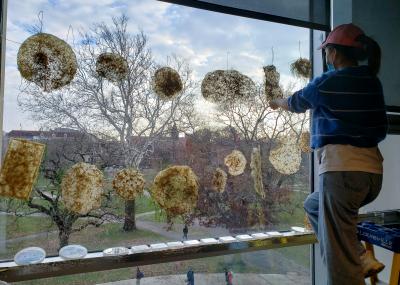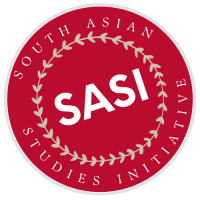Working groups have a long history in the Humanities Institute. Over the past two decades, they have provided a forum within which emergent and potentially exciting interdisciplinary research might find its initial hearing. This listing of current working groups does much of the same work to foster collaborative engagement with people across the university, addressing pressing questions, concerns, and themes in the Humanities today.
The Feminist STS and Social Justice Working Group aims to function as a “hub” for bringing together participants from the Arts, Humanities, the Social Sciences and STEM fields at OSU to collaborate on research, writing, and teaching across shared interests in feminist STS and social justice. Feminist STS (fSTS) is a growing interdisciplinary field that seeks to understand the ways in which systems of power (like race, ethnicity, gender, sexuality, disability, colonialism, and racial capitalism) shape, and are shaped by, the relationships between science, technology, and society, and the ways in which these relationships have long been coproduced in relation to social justice movements and activism. The goal of the Feminist STS and Social Justice Working Group is to foster a space at OSU where critical, creative, and collaborative engagement with fSTS and social justice can develop and coalesce.
To join us, or for other questions regarding this group, please contact Maya Cruz.
Feminist Science and Technology Studies Working Group Leaders:
Maya Cruz (Comparative Studies)
Liliana Gil (Comparative Studies)
Nick Kawa (Anthropology)
Maurice Stevens (Comparative Studies; The STEAM Factory)
Charlene Brenner (The STEAM Factory)
Becky Mansfield (Geography)
Margaret Price (English)
Erin Moore (Anthropology)

The goals of the Living Art Eco Lab Working Group are to conceptualize and create the most relevant and innovative living art/eco physical lab and intellectual hub possible at the intersections of art, ecology, biology, and sustainability, among other fields. We envision a Living Art/Eco Lab as a creative place to engage with the beauty and intelligence of non-human life. Sensory exhibits, technological interfaces, collaborative workshops, and visiting scholars will bring attention to - and nurture respect for - the living things we rely upon. Together we will explore the interrelationships between art, science, nature, culture, and health.
For questions regarding this group, please contact Amy Youngs.
Living Art Eco Lab Working Group Leaders
Lori Espisito (Arts Administration, Education and Policy)
Dominique Gedankeflaksberg (Design)
Dionne Lee (Art and Women's, Gender and Sexuality Studies)
Laura Lisbon (Chair, Department of Art)
Susan Melsop (Design)
Jenifer Owens-Morrison (Art)
Tracy Szatan (Art)
Amy Youngs (Associate Professor, Art)
Metaphors of Reception, Reception as Metaphor (MoRRaM) will explore the importance of metaphor in relation to classical reception studies, an interdisciplinary field that tracks the interpretation and use of ancient Greek and Roman sources in wide-ranging geographical and historical contexts. The diverse metaphors used to figure the relationship between texts have not yet been the topic of sustained, thematic scholarly research, and the metaphor of reception itself has received little attention, either within Classics or in other literary fields which engage with Greek and Roman texts and cultures.
Participants in the group will explore metaphors of reception from key moments which set the intellectual and terminological agenda for the “Western tradition,” broadly defined, from ancient Greek and Roman texts to Renaissance Italian, nineteenth-century German, and postcolonial literatures. We will also investigate the genealogy of the term “reception” and its metaphysical and epistemological presuppositions and implications. Who, or what, is the point of reception? Should this be a subsequent text, which “receives” an earlier text? Or is this the reader of the subsequent text, who themselves constitutes an essential horizon of meaning? Does the term “reception,” which ultimately comes from the Latin root capio, capere (to capture, catch, seize) commit us to a theory of knowledge based on definitive possession?
Public programs will include a workshop series with invited speakers (Autumn 24, Spring 25, and Autumn 25) and a major conference (Spring 26). To learn more about this group, please contact Harriet Fertik (fertik.1@osu.edu) and Ben Folit-Weinberg (folit-weinberg.1@osu.edu).
Metaphors of Reception, Reception as Metaphor Working Group Leaders
Harriet Fertik, Assistant Professor, Department of Classics
Ben Folit-Weinberg, Assistant Professor, Department of Classics
Jonathan Combs-Schilling, Associate Professor, Department of French and Italian
Paul Reitter, Professor, Department of Germanic Languages and Literatures

The South Asian Studies Initiative at Ohio State is a vibrant and growing program, connecting students and faculty across departments who are interested in the study of South Asian languages, history, art, culture, society and politics.
An undergraduate minor in South Asian Studies and a Graduate Interdisciplinary Specialization in South Asian Studies is currently offered by Near Eastern and South Asian Languages and Cultures.
In addition, the South Asian Studies Initiative faculty, along with graduate students, plan events with guest speakers, Brown Bag lunches, and conferences in order to bring greater visibility to South Asian Studies and build community.
If you are interested in learning more, please contact director of the South Asian Studies Initiative Dr. Madhumita Dutta, or visit the South Asian Studies Facebook Page.
South Asian Studies Initiative Working Group Leaders
Amrita Dhar, Assistant Professor, English
Madhumita Dutta, Assistant Professor, Geography
Pranav Jani, Associate Professor, English
Brian Joseph, Professor, Linguistics & Slavic and East European Languages and Literatures
Ila Nagar, Associate Professor, Near Eastern Languages and Literature
Binaya Subedi, Assistant Dean, & Associate Professor, Education (Newark)
Hugh Urban, Professor, Comparative Studies
Scott Levi, Professor, History
Mytheli Sreenivas, Professor, History and Women's, Gender and Sexuality Studies
Rasel Ahmed, Assistant Professor, Theater, Film and Media Studies
Lydia Walker, Assistant Professor, History
